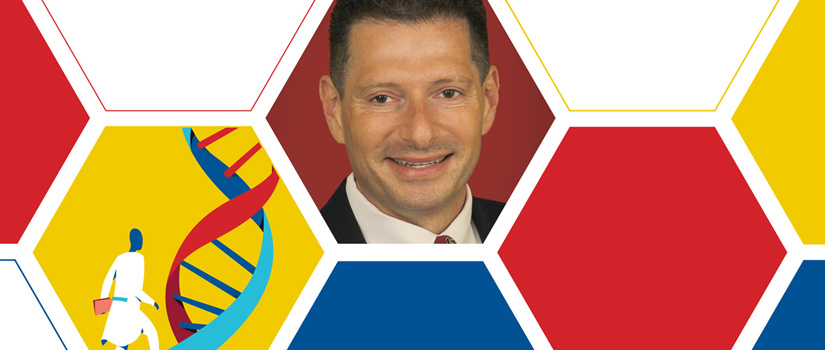Your recent research concerns retail opportunities and the related privacy issues associated with personalized health care products derived from human DNA.
We’ve always had custom products. We’re now talking about the extraction of human DNA from saliva, blood or breath to create a hyper-individualized
product. That could be an individualized meal, cosmetics, a vitamin — it could be a pharmaceutical drug. We’re now tying the customer and the company in a way we’ve never seen, and it’s a whole new area in terms of legal ramifications. Who controls
the DNA? Where
is it stored? Who can access it? We don’t know. And there isn’t a pending court case yet. Companies also make mistakes.
What if a mistake is made at the DNA level? Hyper-personalization is a blessing and
possibly a curse. At the same time, is it quack medicine?
Are you also concerned that a person’s DNA could be used against them? Say, if an insurance company uses your biomarkers to deny coverage?
It’s something that keeps me up at night as a retailer. Although companies say they take security precautions, we still don’t know. But let’s also
look at it from a different perspective. Many companies now use breathalyzers to analyze
health. A pharmacist could potentially see the results of a breathalyzer and provide
a diagnosis. But should they? What’s the role of a pharmacist? Or can you imagine
an employee at a GNC
store or a Vitamin Shoppe taking our breathalyzer, and saying, “Here’s your ideal
vitamin, and by the way, we think you’ve got cancer”? These are the challenges — making
mistakes with biomarkers, empowering employees to give feedback that consumers may
not want, the legal gray areas.
But consumers could also develop a strong relationship with the company.
Loyalty is no longer an issue. Hyper-personalization is a sort of glue. The customer provides DNA in order to receive a product that can’t be obtained anywhere else. In the past, loyalty was always achieved through value or human bonds. Now we’re seeing health organizations enter into a long-term bond with a customer through hyper-personalization.
Can a hyper-personalized product then be copyrighted or trademarked? Can a company trademark your vitamin? In agriculture, a company like Monsanto creates a novel seed and that seed is trademarked.
That’s a good question. At the end of the day, the consumer would not have the copyright. The company would have that, along with the long-term holding of the customer’s DNA.
Not to sound dystopian, but could that also preclude a customer from taking their DNA elsewhere? Is that too far-fetched?
I don’t see an organization trademarking a unique formula, simply because there would be too much similarity be-tween products, but you bring up a good point. There’s an opportunity cost to giving another company your DNA. This isn’t simply a matter of going to a different mall, or clicking another website. It’s a major effort to provide more biomarker data to another company. That’s why I think hyper-personalization is a win-win situation for retailers.
Now, the next phase of all of this will be where the product tells the consumer what they need. Let me give you an example. A customer who has diabetes uses a device to measure blood sugar on a daily level. It will be possible for the device to also manage one’s level of Glucerna in a household, then suggest that the consumer is running low. A smart device may play a role in encouraging consumption.
The consumer then forsakes part of the decision making.
That’s exactly the point of my article. Consumer decision-
making in the future may actually be given over to a smart device — to artificial
intelligence based on household data, consumer habits and biomarkers. “Do you want
to order more? Press this button.” The consumer may be removed from the decision as
the devices take over to manage products that are essential to the consumer’s health.
Many of us who are Amazon shoppers already receive emails that it’s time to repurchase.
The next step is to have the device do it for you.
In many cases, that re-order is automatic. It’s programmed
and we just opt in.
Exactly. Now we’re looking at sensory patch technology. That may tell customers, “This is where you’re deficient in terms of nutrients, here are the products we recommend.” Decision making will change dramatically in the health and nutrition industries. That’s the future.
